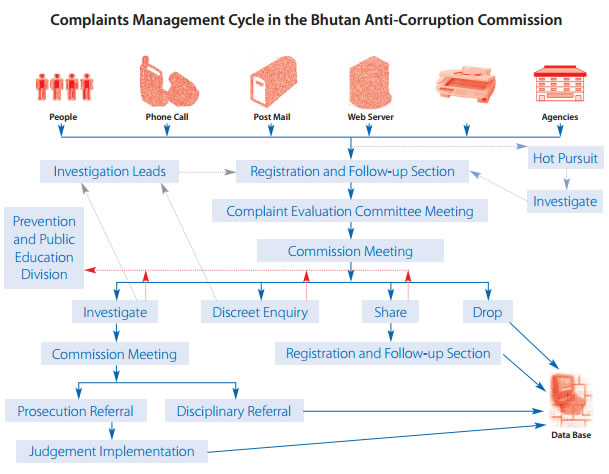Almost invariably, anti-corruption agencies will handle complaints. In order to receive complaints, the anti-corruption agency should communicate with citizens through multiple media about ways to reach them. The anti-corruption agency’s website should give clear guidance on acceptable allegations and complaints, the information to provide and through what means (email, SMS, telephone, fax, letter, in person, etc.), and whether or not the allegation is to be treated confidentially. Staff should record the allegation or complaint with a unique number and document it into a secure paper-based or computerized system. The information should be new to the anti-corruption agency, never sent to another agency and sufficient enough that the agency can check the complaint. The anti-corruption agency should also check the basis for the allegation, if the official or agency exists and whether the complaint falls within the legislative responsibility of the anti-corruption agency and within criteria for the acceptance of cases.
Source: Practitioner’s Guide: Capacity Assessment of Anti-corruption Agencies. UNDP, 2011. p.99
There should be multiple layers of confirmation on next steps. The case may require more information, or could be investigated, held for intelligence, sent to another agency or discarded. It may be useful to have an initial evaluation sheet with objective criteria for every complaint.
